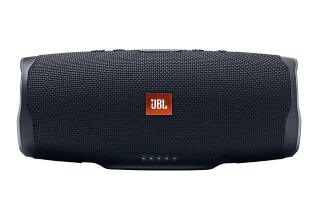Hearing is one of the five main senses, and it’s what we use to understand verbal languages and enjoy the tones of music. For those with especially sensitive ears, the type of speaker used to play digital audio can make all the difference. Not which one of the best speakers fit your home setup? Here are a few criteria that you’ll want to consider when getting a brand-new unit.
Size
Speakers these days come in all shapes and sizes. Some speakers require furniture to be properly set up, while others can fit entirely in the palm of your hand. The size of the speakers affects different factors and the overall quality of the music, but just because the speakers are bigger doesn’t mean they’re necessarily better.
In general, bigger speaker systems will offer richer sound thanks to the fact that they can cover a wider range of frequencies. Smaller speaker sets will have to attempt to play the whole range of notes and frequencies through one or two speakers, but bigger sets are different in that they can have dedicated drivers for each range. These sets are typically paired with a subwoofer or two; these are speakers that specialize in playing the bass notes and vibrations in noises and music.
Portability
Another factor to consider is the overall portability of the speakers. These days, you can get yourself a decent Bluetooth speaker for $20; while they're by no means a substitute for a bigger set, they're infinitely more convenient to use. Portability is an especially important factor to consider if you’re someone who travels a lot and doesn’t really get to stay home all too often.
So, how do you choose a speaker based on portability? Well, it’s simple - if you stay home long enough to be able to make use of non-portable speakers, you can opt for wired models instead of wireless speakers. If you travel often enough, and you find yourself in situations where you could be playing music on speakers, then you may want to invest in a high-quality, portal speaker instead.
Design
When it comes to speakers, form typically follows function since you use them for sound, not for sight. However, there are situations where you may want to prioritize the looks of the speakers themselves. For example, you may want speakers that match the decor of their surroundings. Home theater speakers should blend in with your furniture, and you probably don't want a Bluetooth speaker that visually calls attention to itself. On the other hand, you may want a flashy speaker set if you're planning on using them for a gaming setup.
Musical Preference
At the end of the day, the most important thing to consider when choosing a speaker is your own musical taste. While this may seem a little strange for some at first, this is actually extremely vital if you want to fully enjoy the sounds and music that you typically play.
You see, different types of music use different frequencies and pitches. Depending on the genre that you listen to, some music will make use of specific ranges more than others. For example, people who enjoy listening to electronic music such as dubstep and EDM will enjoy speakers with powerful bass, as those types of music have heavy bass as part of their identity. On the other hand, if you’re a more conventional pop enjoyer, speakers with emphasis on treble and higher notes will make each note and word sound crisper.
Because of this, you should first consider what music you’ll be playing when you get the speakers. If you need the powerful bass, get a speaker set with a dedicated subwoofer to really feel it as you listen. If you aren’t particular about the bass itself, you can get speakers that are smaller instead. If you listen to a wide range of musical genres, then you may want to invest in speakers that can be customized to produce sound good when listening to any specific genre.
Conclusion
Not all speakers are made the same way. Some focus on portability, while others focus on amplifying certain notes or frequencies. Depending on your lifestyle and the type of music you enjoy, the ideal speaker for you may differ from others.






